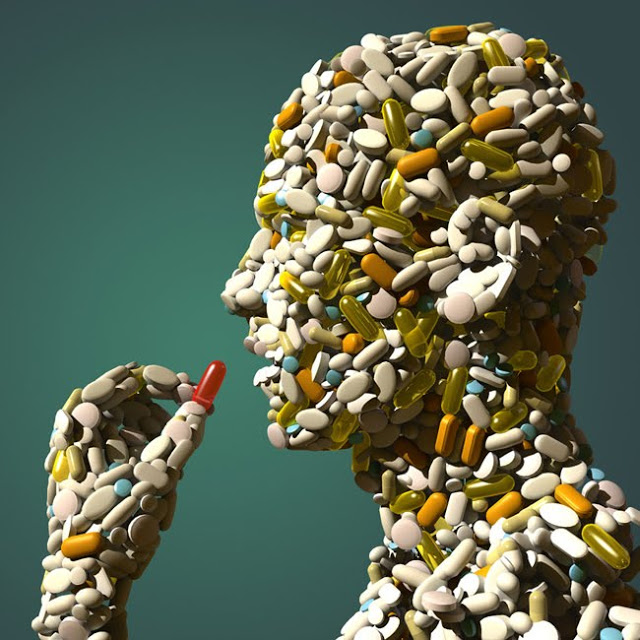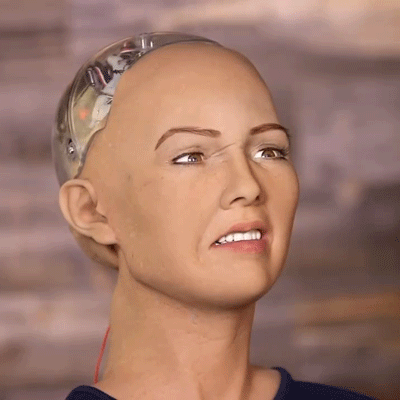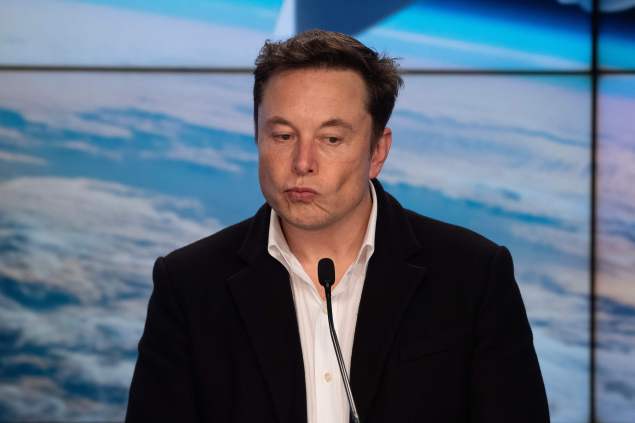One sixth of the adult population of the US takes at least one psychiatric drug daily, a proportion that has risen steadily as a growing share of the emotional spectrum has been pathologized by the psychiatric profession. Anger and resentment are classed as "oppositional defiance disorder" and medicated with antipsychotics, while “hate” is actively criminalized. And with depression “conquered” by medication - even as both diagnosis rates and suicides are at an all-time high - the mental-health industry has a new target: loneliness. With pharmaceutical and even technological "cures" in the pipeline for this "condition," once considered part of the normal human emotional experience but now framed as a dire health risk on the level of obesity and smoking, our very ability to think for ourselves hangs in the balance.
Nearly half of Americans polled last year by health insurer Cigna said they lacked meaningful relationships or companionship, while a third of people in industrialized societies report they are lonely; this state of mind appears to significantly shorten one's lifespan. A solutions-based society might examine why so many people feel alienated from their peers despite the constant connectivity of smartphones and internet. A symptom-focused model, however, simply looks to stop them from feeling that way by any means necessary - never mind the cause, and never mind the consequences.
Loneliness is “worse than obesity,” according to a raft of studies that have emerged linking the emotion to increased risk of premature death - as much as 50 percent, says one meta-analysis by Brigham Young University professor Julianne Holt-Lunstad - and a dramatically lowered quality of life. And like obesity - big business not just for Big Pharma, but for gastric bypass surgeons, weight-loss gurus, and other parasitic professionals who have monetized the American public’s lack of self-control - anything that deadly requires medical intervention.
THERE’S A PILL FOR THAT
The University of Chicago’s Brain Dynamics Laboratory recently began an eight-week trial of the hormone pregnenolone, rounding up volunteers with “off-the-chart” scores on a psychological loneliness scale. Basing their treatment on animal studies suggesting the chemical can reduce the exaggerated threat reactions that they say characterize loneliness, they hope to normalize the lonely person’s self-centered hyper-vigilance, which drives them to both desire human connection and deal poorly with it.
Researchers insist the intention is not to cure loneliness with a pill, but the trial sets a precedent for doing just that. Oxytocin, the "love hormone," is also being considered as a potential treatment based on promising animal studies. Enterprising psychiatrists have previously medicalized aspects of loneliness as "social anxiety" and prescribed tranquilizers or antidepressants, but loneliness itself has never been so directly in the pharmaceutical crosshairs.
And if the hormone trials flop, there’s always Prozac. Already, doctors have claimed antidepressants make patients more sociable, and these drugs have for years been used (and abused) for conditions aside from depression - off-label prescribing of the antidepressants Paxil and Wellbutrin was the basis of the largest pharmaceutical company lawsuit in history. If loneliness is not an emotion but a crisis to be resolved, in which the ends justify the means (however barbaric and harmful they may be), why not bring out the heavy artillery?

Mental health professionals writing about the loneliness epidemic discuss behavioral interventions, community programs, and counseling, but the introduction of a pharmaceutical solution may prove too tempting for a profession that has learned to love the quick fix a pill provides. Like depression, loneliness has myriad possible causes, some of which are natural and healthy reactions to life circumstances. Other, obviously situational, causes would (before the magic pill, at least) call for clear behavioral solutions. Would a psychiatrist reach for her prescription pad when confronted with a lonely person who only socializes through Facebook, even though social media use has been found to correlate strongly with loneliness and studies have shown that just a week away from the platform can bring “significant” improvements in well-being? In this case, at least, correlation equals causation. A solution to the patient's loneliness seems obvious. But why force him to change his life when a pill will do the trick?
The loneliness plague is a real problem - the number of Americans who say they have no one to talk to has tripled since 1985, and the negative health effects are real. Alienation is epidemic. But medicalizing it will only make the situation worse, just as it has with depression. When the profit motive enters the equation and medicalization gives way to monetization, the incentive to get rid of the problem vanishes, replaced by the incentive to diagnose as many people as possible with the condition in order to “treat” them while the relevant drugs are still under patent. Nor is there any incentive to (or expectation of) cure - unlike most patients diagnosed with a treatable disease, individuals deemed mentally ill tend to remain on medication for years, if not for life. Each newly-diagnosed individual thus represents a sizable wad of cash on the table.
In a quick-fix society that prefers to treat the symptoms while ignoring the disease, a pill for loneliness will be embraced with all the fervor with which antidepressants were greeted before people began to realize that they cause suicidal and homicidal behavior, sexual dysfunction, weight gain, and a host of other problems - and that they don’t actually cure depression. Those drugs are still doled out like candy, even after the scientific explanation for their effect (and that effect itself) have been debunked, because it’s easier to take a pill than to come to terms with one’s reasons for being depressed in the first place, especially if they're reasonable responses to environmental factors. Nearly half of Americans struggle just to cover their basic financial needs every month; expecting the chronically stressed to enjoy the feel of the system's boot on their necks is unrealistic. With a similar array of thorny societal causes as depression, loneliness is just as likely to be pharmaceutically exploited.
A loneliness pill would not address Americans’ emotionally unhealthy digitally-addicted lifestyles, a society-wide sickness and source of significant stress. It would instead allow them to socialize exclusively in an online sphere whose boundaries are set by billionaires like Mark Zuckerberg and Jack Dorsey, without experiencing any of the discomfort they would naturally feel at having their gregarious impulses folded, spindled and mutilated to fit an increasingly stringent set of behavioral restrictions. Nor would it confront societal programming that equates solitude with loneliness, with abnormality, and teaches children that if they are not driven to socialize, they are defective. It's no coincidence that fictional dystopias from 1984 to the Handmaid's Tale minimize the amount of "alone time" their citizens are permitted - time alone with one's thoughts is time the state cannot control. But the police state of today is working to change that.
As human contact, including real-life socializing, has become a luxury - so says the New York Times, explaining that humans are expensive, screens and robots are cheap, and expecting the unwashed masses to be able to afford access to living, breathing humans like themselves is simply unrealistic - the "digital pets" millennials had as children have matured to "digital friends," even digital lovers as they themselves have grown up. And these digital companions double as the eyes and ears of a shockingly intrusive surveillance state.
BRIDGING THE UNCANNY VALLEY
If the “loneliness pill” doesn’t work out, AI is waiting in the wings. Already seen as the future of at-home healthcare for aging populations under the care of cash-strapped governments, friendly, helpful robots could find their way into the homes of the lonely. And everyone gets lonely sometimes! Certainly, the mass deployment of robo-buddies circumvents the surveillance hurdle faced by in-home AI snoops like Amazon’s Alexa, which many Americans find creepy (and not just for its tendency to burst into sinister laughter unprovoked). Frame the intruder as a medical benefit, however, and some of that opposition falls by the wayside. After all, loneliness kills, and no one wants to die.

As lonely humans become accustomed to conversing with their robot pals, their expectation for real human contact will diminish, and their sense of loneliness with it. After all, you can’t miss what you never had. Already, given the stunted level of discourse on social media, many of us have found ourselves tricked into talking to bots, sometimes exchanging several messages before realizing our interlocutor is not human. A study published earlier this month in First Monday found bots' online activity is becoming more human-like - and humans are behaving more like bots. The Voight-Kampff Test used by Philip K Dick’s “blade runners” to determine whether a suspect was human or android can be graded on a curve.
As the bar for “meaningful relationships” is lowered to the point where chatting with an AI can qualify, the loneliness epidemic vanishes - on paper, at least, and in US public health policy, sometimes that’s all that matters.
LONELY OR JUST ALONE?
The pathologization of loneliness will inevitably elide the difference between being alone and being lonely, as the mental health industry runs out of lonely people to treat with whatever therapeutic weapon wins this particular arms race and is forced to look further afield for patients. “Loners” - those dangerous types who actually enjoy solitude - are stigmatized as unpredictable weirdos who need to be brought into the fold. The man who shot up a Walmart in El Paso earlier this month was an “extreme loner,” according to media reports. Would we be reading about it if he was an “extreme extrovert,” someone so addicted to the company of other humans he couldn't stand to spend a second alone? Extroversion is a characteristic of the psychopathic personality, yet extroverts are not stigmatized for this, or treated as potential serial killers because they feel compelled to socialize - instead, the “introvert killer” trope is reliably trotted out after every tragedy, even though it has been repeatedly debunked.
With no loneliness pill on the market - yet - it is impossible to predict what’s next for the creeping medicalization of the human emotional experience. But the surveillance state is muscling into the “mental health” sphere as never before. The Trump administration has reportedly embraced a new Health Advanced Research Projects Agency, modeled after the Pentagon’s DARPA, that will develop a method for analyzing “neurobehavioral signs” to determine whether someone is “headed toward a violent explosive act.” HARPA’s proposal suggests a “multi-modality solution, along with real-time data analytics” to be garnered from technologies like Apple Watches, Fitbits, Amazon Echo, and Google Home. And in case you leave your smartphone at home, AI cameras are increasingly being deployed in public places equipped with advanced facial recognition and behavioral analysis capabilities
Researchers believe they can diagnose depression with nothing more than smartphone usage and GPS data, having tested this hypothesis using an app called iSee to monitor college students - ground zero for the "campus mental health crisis." Combine this diagnosis-at-a-distance with emergency service surveillance technology like Carbyne911 (developed by Israeli intelligence) and 911eye (developed by the West Midlands police department, pioneers of pre-crime technology in the UK) and you get surveillance-enabled AI empowered to call the authorities when they decide you're a threat to yourself or your peers. And Amazon’s Alexa has moved one step closer to the companion-robot model, rolling out a medical feature earlier this year which could conceivably be deployed to “check on” individuals at risk for loneliness. The devices that have been surveilling us for years may thus become empowered to have us committed - for our own good, of course, and the good of society.
In the aftermath of recent mass shootings, Trump declared open season on the “mentally ill,” floating the idea of involuntary confinement and institutionalization, while governors like New York’s Andrew Cuomo have proposed mental health databases that would affix an indelible scarlet letter to anyone seeking help with a psychological issue - effectively driving many of the people who actually need help away from the system out of fear of the repercussions for their personal and professional lives. The idea that “extreme loners” might find themselves medicated against their will, as a preemptive measure, is not far-fetched.

And Elon Musk’s Neuralink device proposes bringing the AI directly to your brain, “merging biological intelligence with machine intelligence,” so you never have to feel lonely again - or experience any inconvenient emotions. Musk envisions a future in which customers will have the devices installed in shopping mall kiosks, no more intrusive than an ear-piercing. Social scientists fear it’ll be “suicide for the human mind” - while no one knows for sure where consciousness resides, if it's anywhere near our squishy grey matter, it doesn't stand a chance against cold silicon precision. Even Musk acknowledges that Neuralink is an "if you can't beat them, join them" approach to a future AI takeover.
Implantable AI hands the state the tools to control our thoughts. Indeed, we will no longer be able to tell which thoughts are "ours," and which come from the device implanted in our skull. Transhumanists speak glowingly of "merging with the machines," forgetting (or perhaps deliberately omitting) that the machines have programmers, and those programmers work hand in glove with the military-industrial complex. If they get their way, you’ll never be able to feel lonely again, because Big Brother will take up residence inside your skull. Solitude - like privacy before it - will be a distant memory, assuming you're permitted to remember it at all. And like privacy, children born today may never know what it is like to experience loneliness - nor will they ever have the pleasure of being alone with their thoughts.
(originally published in much shorter form on RT)


